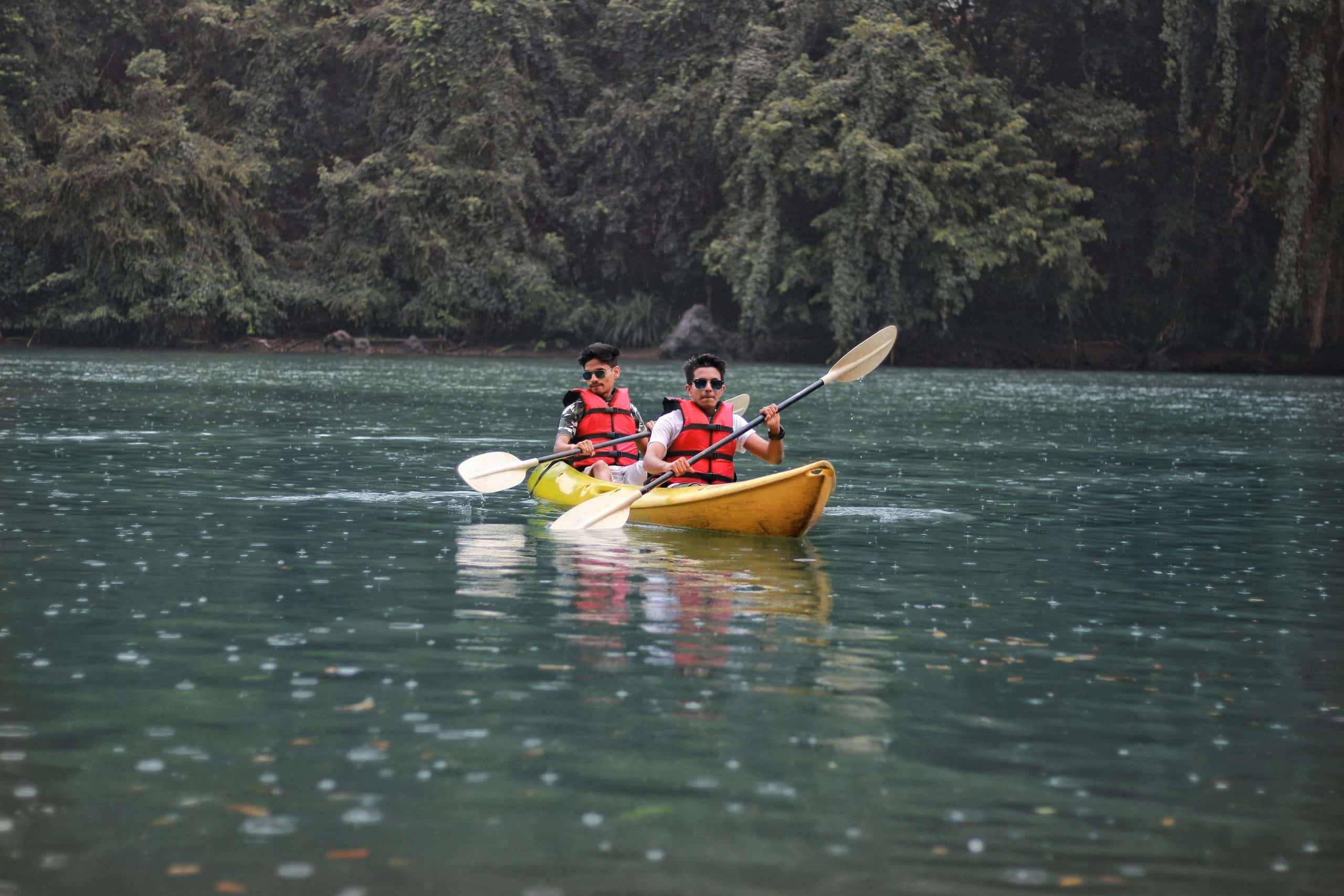In recent years, the connection between physical activity and mental health has been the subject of considerable research. It is increasingly recognized that participating in sports, particularly adventure sports like kayaking, can significantly impact our psychological resilience and overall well-being. The aim of this article is to explore the benefits of regular participation in adventure sports, specifically focusing on kayaking, and its impact on increasing psychological resilience and promoting well-being. We’ll delve into how the challenges and thrills of such sports can contribute to mental health and personal growth.
The Concept of Psychological Resilience
Before we explore the impact of adventure sports on psychological resilience, it’s crucial to understand what this term means. Psychological resilience refers to one’s capacity to withstand stressors and bounce back from adversities in life. It’s an internal resource that allows us to cope with challenges effectively, recover from setbacks, and adapt positively to change.
In the same genre : Can The Use of Gamified Breathing Exercises Apps Reduce Incidences of Asthma Attacks in Children?
Resilient individuals are known to handle stress better, maintain good mental health during crises, and display an optimistic outlook on life. They are less likely to develop mental health disorders and more likely to enjoy a high quality of life. Psychological resilience isn’t a fixed trait; it can be developed and strengthened over time, and adventure sports like kayaking can play a pivotal role in this process.
Kayaking and Psychological Resilience
Kayaking, an adventure sport that requires navigating through water bodies using a small boat, presents an array of challenges that can help build psychological resilience. The unpredictable nature of water conditions, the need for strategic thinking, and the physical demands of the activity all offer opportunities for resilience-building.
Also to discover : What Are the Health Implications of Adopting Flexitarian Diets for Individuals with Chronic Inflammatory Conditions?
When you’re out on the water, you’re constantly dealing with uncertainty. This uncertainty can be a powerful tool for building psychological resilience. You learn to stay calm under pressure, make quick decisions, and adapt to changing situations. In the long run, these skills can translate into better stress management and problem-solving abilities in everyday life.
Furthermore, the physical exertion involved in kayaking can also contribute to improved psychological resilience. Research has shown that physical activity can boost mood, reduce anxiety, and contribute to better mental health. The adrenaline rush and the sense of achievement you get after successfully navigating through challenging waters can significantly enhance your self-confidence and self-efficacy, key aspects of psychological resilience.
Adventure Sports, Well-being, and Kayaking
Participating in adventure sports like kayaking is not only a great way to keep fit but it can also significantly contribute to one’s overall well-being. Well-being encompasses various aspects of our lives, including physical health, mental health, personal relationships, and our sense of fulfilment and purpose.
When you’re out on the water, the combination of physical activity, the beauty of nature, and the thrill of navigating through waters can create a deep sense of contentment and satisfaction. Studies have shown that spending time in nature can have a positive impact on our mood and mental health, helping to reduce stress, anxiety, and depression.
Moreover, adventure sports like kayaking can also contribute to our social well-being. Often, these activities are done in groups, providing opportunities for social interaction and fostering a sense of community and belonging. Engaging in a shared activity can strengthen social connections, enhance interpersonal skills, and promote a sense of teamwork and camaraderie.
The Therapeutic Benefits of Kayaking
Lastly, let’s not overlook the therapeutic benefits of kayaking. This adventure sport is increasingly being used as a form of therapy, known as adventure therapy, for people dealing with mental health issues like depression, anxiety, and post-traumatic stress disorder (PTSD).
The therapeutic benefits of kayaking lie in its ability to combine physical activity, exposure to nature, and the requirement for focused attention. This combination can lead to a state of ‘flow,’ a psychological state where one is completely absorbed in an activity, leading to enhanced enjoyment and fulfilment. This flow state has been associated with a range of positive psychological outcomes, including increased happiness, better quality of life, and improved mental health.
In conclusion, the regular participation in adventure sports like kayaking can significantly affect our psychological resilience and well-being. While the physical benefits of such sports are well-known, their impact on mental health is profound and worth exploring. So, whether you’re a seasoned kayaker or a beginner, know that each paddle stroke is not just moving you through the water, but also paving the way towards greater psychological resilience and well-being.
Impact of Adventure Sports on Mental Health
The positive correlation between adventure sports and mental health can be traced back to a number of studies. Kayaking, like other adventure sports, has been linked with improved mental health outcomes. According to a study published on Google Scholar, adventure recreation such as kayaking can positively influence mental health by reducing negative affect and increasing positive affect.
Kayaking offers a unique combination of physical activity, exposure to the natural environment, and a sense of adventure, which collectively contribute to mental well-being. The physical exertion involved in kayaking can release endorphins, the body’s natural mood elevator, reducing stress and anxiety. The natural environment provides a therapeutic and calming backdrop, promoting mindfulness and relaxation.
More so, extreme sports like kayaking require mental focus and discipline, which can foster a sense of accomplishment and improve self-esteem. This sense of achievement can instill a positive mindset, making it easier for individuals to tackle everyday problems and challenges. The benefits of participating in adventure sports extend beyond immediate gratification and can lead to long-term mental health improvements.
The Connection Between Adventure Sports and Life Satisfaction
Adventure sports like kayaking can significantly contribute to life satisfaction. A study by Houge Mackenzie, published on Google Scholar, suggests that participation in outdoor adventure sports can increase an individual’s overall life satisfaction. The elements of challenge, personal achievement, and the ability to connect with nature play a crucial role in enhancing one’s quality of life.
Water sports, like kayaking, provide opportunities to set and achieve personal goals, boosting self-confidence and satisfaction. The social aspect of these recreational activities provides a sense of community and belonging, contributing to one’s social well-being. The natural environment can lead to a deep appreciation and connection with nature, promoting environmental awareness and respect for biodiversity.
In addition to physical health and resilience, the psychological well-being and life satisfaction derived from adventure sports cannot be overstated. The sense of exhilaration, freedom, and connection with nature experienced during these activities can foster a deep sense of joy and fulfillment, contributing significantly to overall life satisfaction.
Conclusion
In conclusion, adventure sports like kayaking, rock climbing and other outdoor adventure activities play a significant role in enhancing psychological resilience and well-being. The physical activity combined with the unique challenges and thrills of being in the natural environment can significantly improve mental health outcomes, reduce negative affect, and increase life satisfaction.
Research, such as those found on Google Scholar, supports the benefits of adventure sports on human health, both physical and mental. So, whether you are already an enthusiast of extreme sports or considering taking up an adventure sport, remember that the benefits extend beyond physical fitness. Every paddle stroke or climb doesn’t just bring you closer to your physical goals, but also contributes to your psychological resilience and overall well-being. Therefore, consider adding some adventure to your routine. Your mind and body will thank you.











